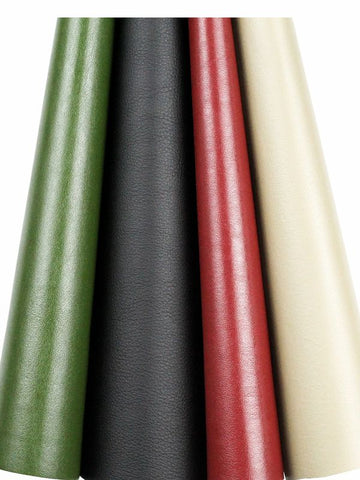Vegan materials as alternatives to leather
Why avoid leather?
Whether for ecological reasons or sensitivity to the animal cause , more and more of us no longer want to buy leather.
Animal suffering , tannery workers exposed to health risks, environmental damage... several elements lead us to question ourselves. The harmful effects of leather are numerous and I explain them in detail in the article The impact of leather on animals, humans, the environment . It is therefore for ethical convictions that Zebra Vegan Shop distributes only leather - free and vegan-certified fashion items , which guarantees that no material of animal origin enters into the composition of the products.
It is sometimes difficult to find your way around the terms: vegan leather , vegetable leather, imitation leather , etc. First of all, a little clarification on the word leather : it refers to the skin of an animal . It is therefore not correct to use this term to talk about a material that does not contain it: such as vegan leather , apple leather, etc. This is why I will put " leather" in quotation marks or use the term imitation leather, or alter-leather.
What is vegetable leather?
Be careful not to confuse vegan shoes and vegetable leather shoes.
We are hearing more and more about shoes made of vegetable leather . This term is a bit confusing because it actually refers to animal leather but which has been tanned in a vegetable manner . Indeed, in the majority of cases, leather tanning is done with chemicals ( in particular chrome which is very harmful to the health of workers ) .
Vegetable tanning is less widespread because it is much longer and more expensive. It consists of using tanning agents from plant sources (fruits, wood bark, roots, leaves, etc.) which are still chemically modified, but remains less toxic than chrome tanning.
But what solutions are available to us when we are looking for shoes without animal leather ? Or even a vegan bag or a belt ? What are the alternative materials to leather for making vegan shoes ?
What can I replace leather with?
A few years ago, when you wanted to buy a pair of shoes or a bag without leather, you had the choice between plastic or plastic. And very often the exact composition is not specified : is it polyurethane , polyester or PVC ? On the label, all these materials are grouped under the same symbol of a small diamond "other materials ".
Today, new alternative materials are emerging, made from fruit and plant waste such as pineapple, cactus, apple and even grapes .

They offer us the possibility of consuming differently and choosing less polluting materials .
I want to say that no material is perfect since all production generates pollution. These so-called " vegetable " materials also contain synthetic components (often polyurethane) in order to make them durable and robust .
Because if shoes were made from 100% fruit, well I'll let you imagine the state (and smell) of your feet!
Here is some data that can reassure you about choosing synthetic materials over leather: It takes on average 20 times more resources to produce 1 kg of leather than to produce 1 kg of synthetic .
Each alternative material has its qualities and its defects, the main thing is to know more about them and make them accessible .
It is by democratizing these vegan "leathers" that we will be able to improve them. Because the more consumers and brands are interested in these materials, the more suppliers will be able to invest in their developments.
List of alternative materials to leather
Here is a list of materials used to make vegan shoes and vegan leather goods . Feel free to click on each material to read their presentation.
- Cork
- Piñatex: pineapple “leather”
- Dessert: cactus “leather”
- Appleskin: apple “leather”
- Vegea: grape “leather”
- Eucalyptus
- Synthetic materials
This list will be updated regularly, I hope it will help you get familiar with these vegan materials .
Feel free to leave a comment to tell us what you think of vegan alter-leather ! Have you already tried it?
